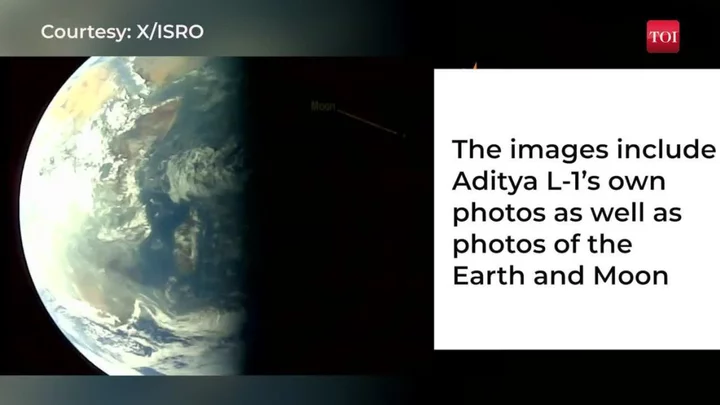India’s Vikram lunar lander has recorded movement below the surface of the Moon – but it’s probably not aliens.
Experts think the movement is seismic activity – the lunar equivalent of earthquakes. It is the first time humans have detected the so-called moonquakes since the 1970s.
The new activity was recorded by the Vikram lander’s onboard instrument for lunar seismic activity, a piece of kit designed “to measure ground vibrations generated by natural quakes, impacts, and artificial events,” the Indian Space Research Organization (ISRO) said.
India’s Chandrayaan-3 mission saw it land the Vikram and its sister craft, the Pragyan rover, last month, becoming the first nation to land near the Moon’s little-explored South Pole.
It also makes India just the fourth nation to land on the Moon, alongside the US, the former USSR and China.
The seismic activity is the first recorded since the US Apollo programme, which ended in 1977.
Those recordings yielded valuable data about the Moon’s makeup. Scientists have been able to theorise that the Moon has an inner core which is much less dense than the Earth’s and which is about 500km across.
On Earth, seismic activity is caused by the shifting of the planet’s tectonic plates. But on the Moon, things are a bit different.
The quake could be caused by thermal activity from the Sun, or by tidal stresses caused by Earth’s gravity, cracking the planet and causing the pieces to rub together.
The team noted that the event is currently under investigation.
Sign up to our free Indy100 weekly newsletter
Have your say in our news democracy. Click the upvote icon at the top of the page to help raise this article through the indy100 rankings.

